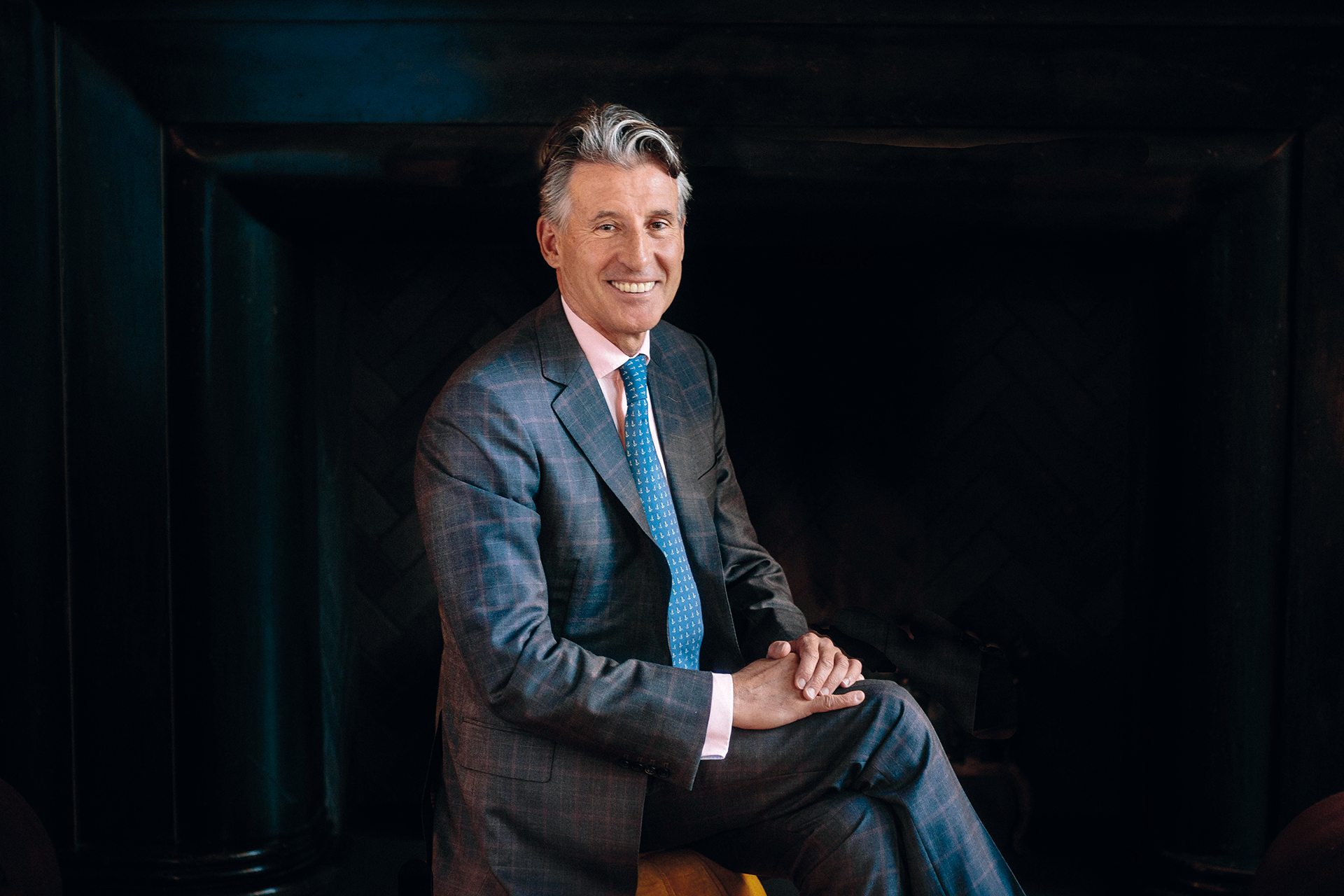Conversations In Isolation: Seb Coe
This post may contain affiliate links. Learn more
During lockdown Scarfe’s Bar is shut, so we’re asking some of our past interviewees how they’re coping with isolation and how they think Coronavirus will change our world – this week: President of World Athletics and Olympic gold medallist Seb Coe, KBE. Charlotte Metcalf spoke to him by Zoom at home.
Conversations In Isolation: Seb Coe

Where are you isolating?
At home in Surrey, towards the border with Hampshire. I’m with my wife, her 27-year old daughter and my oldest son who’s a tech analyst and helps me with technology.
How are you keeping fit?
I just run! Luckily we’re in the middle of nowhere so I scan sneak out and run round the lanes. But I did also do the London Marathon 2.6 Challenge – in real life it’s a 26-mile course so on 26th April lots of us joined in the challenge. I did 26 lots of 26 crunches one day, a 26-mile bike ride another, then two hours and six minutes on the treadmill, 26 lots of 26 shuttle runs and 26 lots of 26 press ups, by which time my shoulders were up to my ears. My brother realised he hadn’t done more than between two and six crunches in 26 years but he did the challenge by mixing 26 vodka Martinis and then making a big donation!
Are you working?
I’ve never been busier. The longer I stay at home, the more homeless and crazed I’m starting to look with an average of twelve Zoom calls a day all round the world. One day I joined a meeting hosted by the Indian Association, which had 1000 people training how to officiate at athletics events online. A big chunk of every day is taken up with trying to make sure it will soon be safe to allow spectators to watch competitive athletics again. We do have an advantage as we’re not a team sport – just look at how 43 million people tuned in to watch individual pole vaulters compete from their gardens all over the world.
C&TH Podcast: Lockdown Culture with Ed Vaizey
What have you learnt in isolation?
I’ve learnt that working this way is much more effective and natural. I’ll do two hours of intense work online and then do something else for half an hour like listen to jazz and have a moment to take stock. It’s the first time the world has learnt to breathe properly. I’m also using technology I didn’t even know existed. I never owned an iPad and wrote in longhand instead of typing. Everyone in the sports world used to laugh at me and now they’re saying, ‘At last!’ when I’m online and answering texts.
The genuinely smart businesses have used lockdown time to look at how they operate, and I was just saying to World Athletics that I’m never going to be signing off again on people flying across the world to make a presentation. The other morning I joined the Oceania Council Meeting at three am for two hours, with 19 associations joining from six continents. That would have taken a week out of my life before – two days to Australia, two days back, two to three days there, but we all managed to do it with absolute focus in two hours – that has to be a lesson.
How do you see the post-Coronavirus world?
There’s a growing disparity between the haves and have nots and between those who eat well and have access to gyms and physical activity and those who don’t. We have to level the playing field and it’s so clear we can no longer take a patronising attitude. Governments will have huge budget deficits but any cuts and savings absolutely must not be at the cost of youth services and fitness. If you’re asking people to be physically active, then you have to free up space and that comes with planning so there has to be a cross-departmental approach. Is it reasonable to drop VAT on books, school clothes and food but then slap it on gym equipment, running shoes, fitness club membership and so on? Be serious about it!
PE has been withering on the vine in schools for far too long so World Athletics will become the campaigning organisation to spearhead the movement for all children to have PE and sports. If you have a body you are an athlete. The London Marathon changed the way everyone thought about themselves – not everyone needs to look like Paula Radcliffe to participate and it’s brought so many people to fitness. Now we mustn’t lose that momentum and my focus will be on the health and fitness of communities.
It’s alright for sport to be behind closed doors for a bit while we battle the virus but it’s not what people want from sport. They miss it so much it feels like bereavement. Sport has the capacity to be the single biggest driver in bringing people back together. It’s the glue in all our communications and the most potent social worker in any community. Just look at village cricket on a Sunday afternoon – it brings people together in a way nothing else does and politicians must understand that and support it.
READ MORE:
